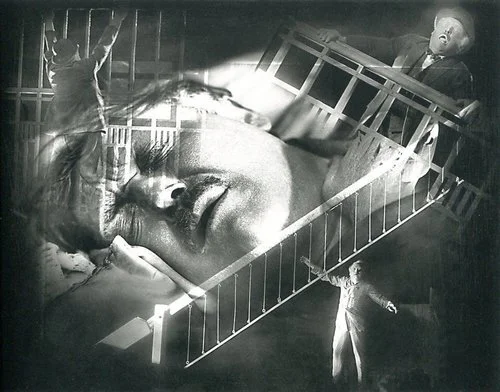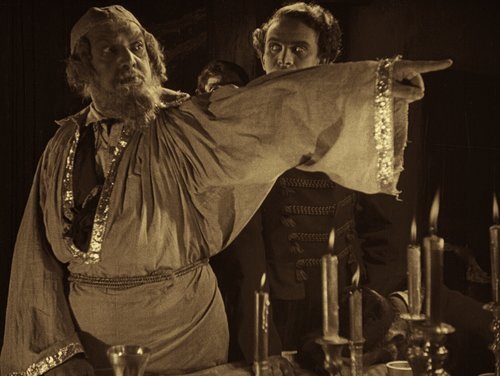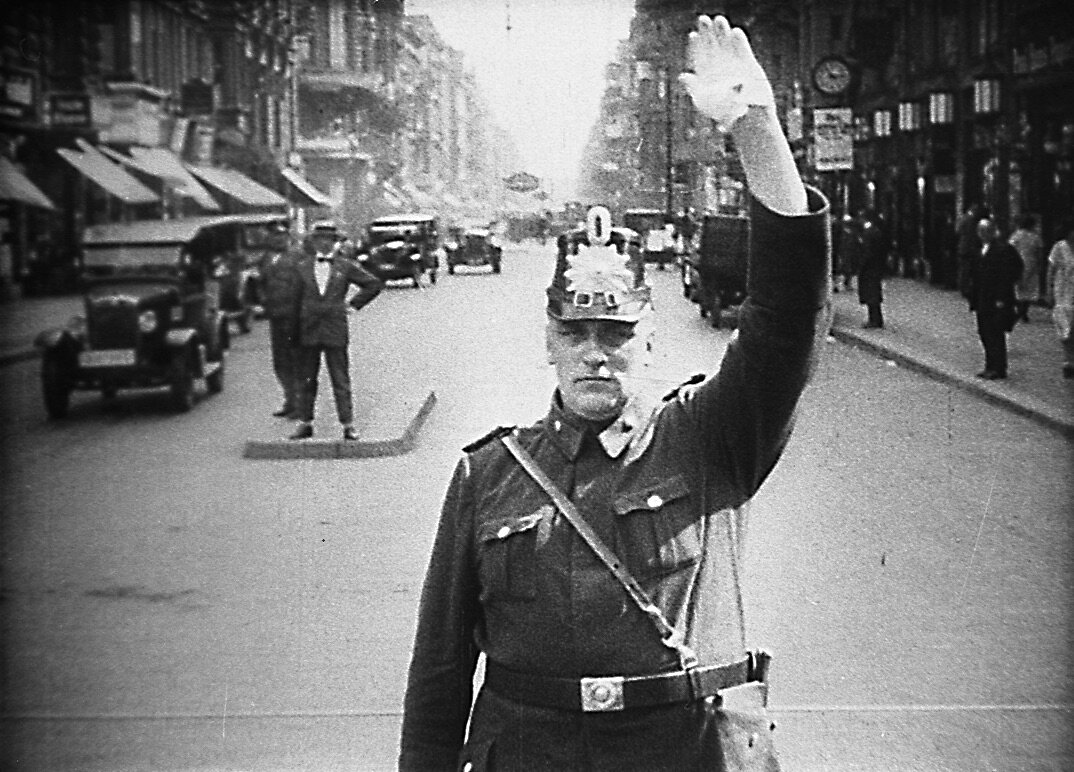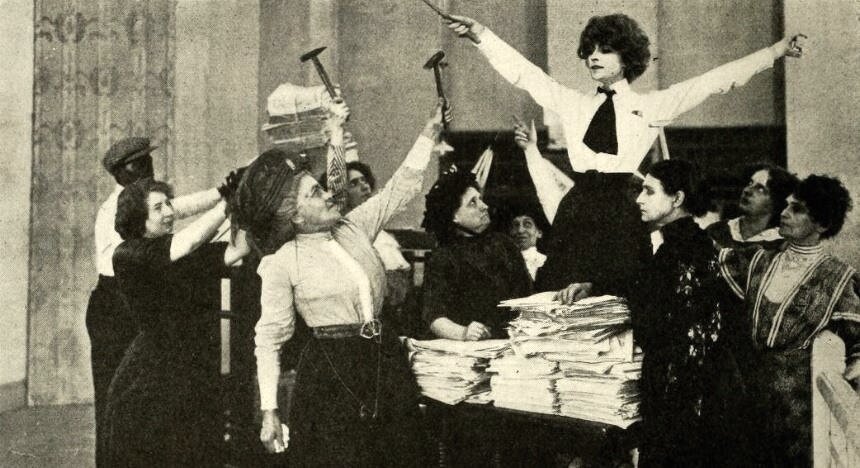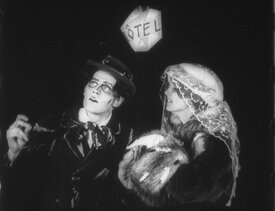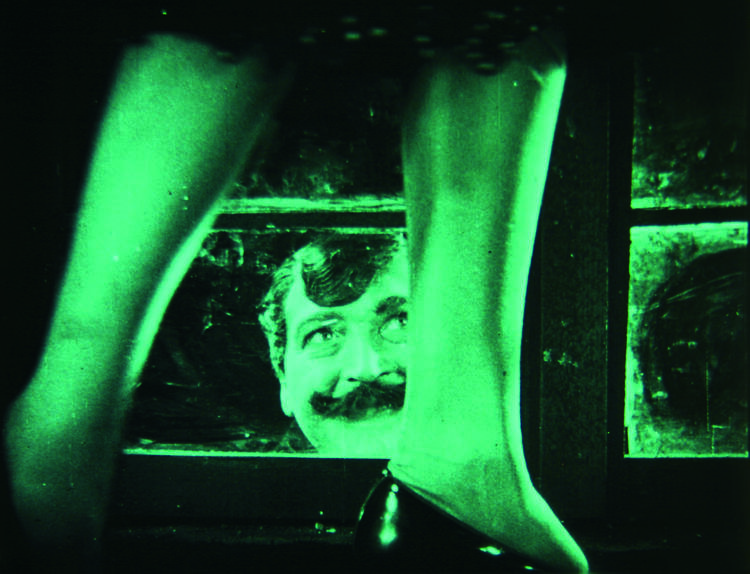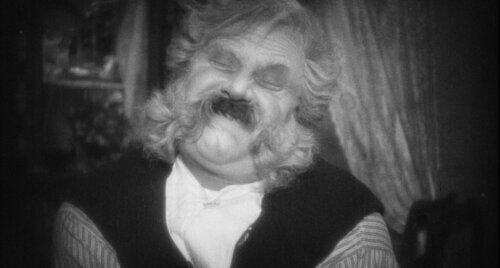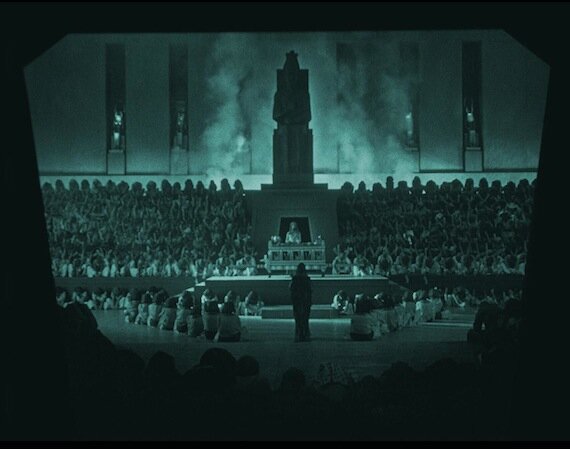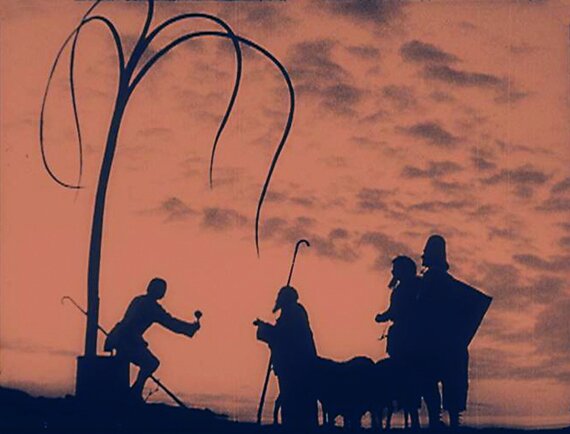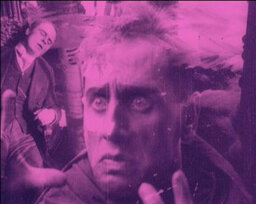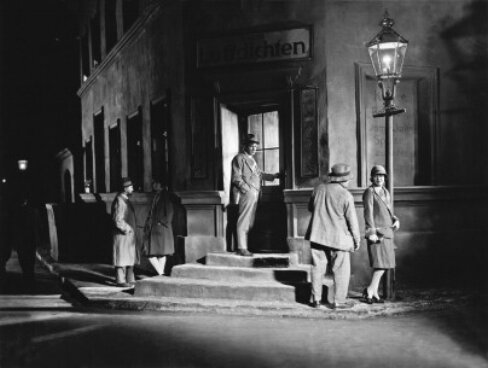GERMAN SILENT FILM LIST
Prior to World War I, European film production was dominated by the French and Italians. The social and economic devastation of the war caused European cinema production to slump. This crisis throughout that continent allowed the United States to dominate movie-making during the 1920s. The political and social instability in Weimar Germany (1918-1933), as well as its economic shortages, had a profound impact on post-war German culture. Unable to afford the huge sets, lavish costumes and extensive props of Hollywood, German film-makers looked for new ways to convey atmosphere, mood and emotion, primarily through what later became known as German Expressionism. A rise in naturalism also emerged, which became known as New Objectivity, in which the filmmakers also explored much darker themes than Hollywood: crime, immorality, social decay and the destructive powers of money and technology. This selection of German silent film titles offered by GME includes works by well-known German directors including E.A. Dupont, Ernst Lubitsch, F.W. Murnau, G.W. Pabst, and Walther Ruttmann, as well as rediscovered filmmakers Gerhard Lamprecht, Karlheinz Martin, Manfred Noa, and Robert Reinert.
THE ANCIENT LAW (DAS ALTES GESETZ)
E.A. Dupont (Germany)
THE ANCIENT LAW is an important piece of German-Jewish cinematic history, contrasting the closed world of an Eastern European shtetl with the liberal mores of 1860s Vienna. With its authentic set design and ensemble of prominent actors - all captured magnificently by cinematographer Theodor Sparkuhl - THE ANCIENT LAW is an outstanding example of the creativity of Jewish filmmakers in 1920s Germany.
2009 - BEST SPECIAL FEATURES ON DVD (BONUS)
BERLIN: SYMPHONY OF A GREAT CITY (BERLIN, DIE SINFONIE DER GROßSTADT) & MELODY OF THE WORLD (MELODIE DER WELT)
Walther Ruttmann (Germany)
Walther Ruttmann is a pioneer of modern multimedia art. His first short films are unique experiments with forms, colors, and rhythm, his innovative commercials connected abstract animation art with concrete messages. The symphonic documentary BERLIN, DIE SINFONIE DER GROßSTADT is one of the most famoussilent classics, the travelogue MELODIE DER WELT became the first German sound feature film.
FOUR FILMS WITH ASTA NIELSEN
Various Directors (Germany)
In DIE SUFFRAGETTE (THE SUFFRAGETTE), Asta Nielsen plays the Englishwoman Nelly Panburne. Through her mother, Nelly comes to know the suffragette movement and joins it. In the course of the film Nelly must undergo a crucial test in the conflict between her political convictions and her love for Lord Ascue, the bitter opponent of the suffragettes.
FROM MORN TO MIDNIGHT (VON MORGENS BIS MITTERNACHTS)
Karlheinz Martin (Germany)
Georg Kaiser describes in his Expressionist theater play, FROM MORN TO MIDNIGHT (VON MORGENS BIS MITTERNACHTS), the attempt of a bank cashier to escape his middle class daily life. Director Karlheinz Martin's film adaptation transfers Kaiser's play into an Expressionist work of radical stylization. The German film industry was so irritated by the resulting film, that it never found domestic distribution, and was never shown in German cinemas.
2010 - BEST SPECIAL FEATURES ON DVD (BONUS)
THE JOYLESS STREET (DIE FREUDLOSE GASSE)
Georg Willhelm Pabst (Germany)
DIE FREUDLOSE GASSE (THE JOYLESS STREET) is not only one of the most important films of the Weimar Republic, it is also one of the most spectacular censorship cases of the era. The story from the inflationary period in Vienna in the years immediately after World War I was considered too much of a provocation: nouveau riches currency and stock market speculators who wallow in Babylonian luxury, homeless and unemployed Lumpenproletariat living in barns, women who sell their souls for a bit of fresh meat at the butcher's, sexual orgies, bordellos and murders.
THE LAST LAUGH (DER LETZTE MANN)
F. W. Murnau (Germany)
One of the crowning achievements of the German expressionist movement, THE LAST LAUGH (DER LETZTE MANN 1924), directed by Friedrich Wilhelm Murnau (PHANTOM) and starring Emil Jannings stars as an aging hotel doorman whose happiness crumbles when he is relieved of the duties and uniform which had for years been the foundation of his happiness and pride. Through Jannings’s colossal performance, THE LAST LAUGH becomes more than the plight of a single doorman, but a mournful dramatization of the frustration and anguish of the universal working class.
THE LOVES OF PHARAOH (DAS WEIB DES PHARAO)
Ernst Lubitsch (Germany)
Ernst Lubitsch's DAS WEIB DES PHARAO, produced in Berlin in 1921, was the most expensive German film production of its time. Premiering in New York in February 1922, THE LOVES OF PHARAOH began a successful international release in many countries. Its director, Ernst Lubitsch was at the top of the German film industry following-up on his international hit MADAME DUBARRY (1919).
NATHAN THE WISE (NATHAN DER WEISE)
Manfred Noa (Germany)
Manfred Noa's adaptation of Gotthold Ephraim Lessing's stage play is one of the completely forgotten classics of German silent cinema. It is an appeal to peace and tolerance that was violently attacked by the Nazis. The story takes place against the backdrop of religious wars between Christians, Islamists and Jews in 12th-century Jerusalem, and it stars Werner Krauss (THE CABINET OF DR. CALIGARI), in one of his best roles.
NERVES (NERVEN)
Robert Reinert (Germany)
In NERVES (NERVEN), writer-director-producer Robert Reinert tried to capture the "nervous epidemic," that seemingly drives people to madness as a result of war, misery and social unrest. This unique portrait of life in 1919 Germany, filmed on location in Munich, describes the cases of different people from all levels of society: Factory owner Roloff, who loses his mind as a result of catastrophes and social disturbances; teacher John, who is the hero of the masses; and Marja, who turns into a radical revolutionary.
THE PEOPLE AMONG US (MENSCHEN UNTEREINANDER) & UNDER THE LANTERN (UNTER DER LATERNE)
Gerhard Lamprecht (Germany)
The double-DVD set, THE PEOPLE AMONG US (MENSCHEN UNTEREINANDER) & UNDER THE LANTERN (UNTER DER LATERNE), presents two films by Gerhard Lamprecht, sketching social panoramas of late 1920s Berlin. THE PEOPLE AMONG US (MENSCHEN UNTEREINANDER) delineates the social microcosm of a tenement building; the tenants represent a cross-section of poverty, corruption and compassion. In UNDER THE LANTERN (UNTER DER LATERNE), the girl Else begins to follow the wrong path after an altercation with her father. The high life turns out to be the first step in a downward spiral.
F.W. Murnau (Germany)
PHANTOM marked a major turning point in the influential career and the groundbreaking style of cinema poet F.W. Murnau. This beautifully reconstructed and restored edition, from an original 1922 negative, features a new orchestral score by Robert Israel. This powerfully expressive and surprisingly insightful film is a triumph of German Weimar cinema and a wonderful collaboration of many of its most skilled artisans (screenwriter Thea von Harbou – M, METROPOLIS; production designer Hermann Warm - CABINET OF DR. CALIGARI, VAMPYR) and recognizable performers.
SLUMS OF BERLIN (DIE VERRUFENEN (DER FÜNFTE STAND)) & CHILDREN OF NO IMPORTANCE (DIE UNEHELICHEN)
Gerhard Lamprecht (Germany)
SLUMS OF BERLIN (DIE VERRUFENEN (DER FÜNFTE STAND)) & CHILDREN OF NO IMPORTANCE (DIE UNEHELICHEN) is a double-DVD set presenting two feature films by Gerhard Lamprecht which reproduce German illustrator Heinrich Zille's view of the Berlin milieu ("Milljöh"). In SLUMS OF BERLIN (1925) the engineer Robert Kramer, released from prison, cannot find his way back to civilian life. He wants to end his life, but is held back by the streetwalker Emma. In CHILDREN OF NO IMPORTANCE (1926) three working- class children suffer under their violent foster parents, till a dramatic incident changes their lives.

